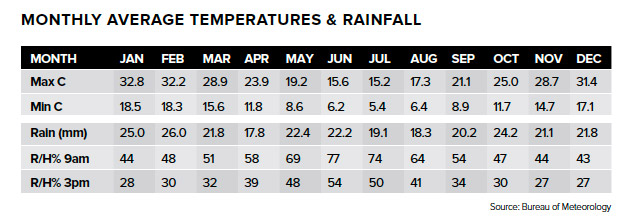Driving and Safety Tips
Outback Travel
Please only leave behind your footprints. Outback NSW are conscious about the needs of the environment and we welcome visitors and appreciate your support in caring for our land, communities and people.
The NSW Outback is easily accessible and a safe place to travel. Like any journey, correct planning, preparation and common sense will ensure a memorable and wonderful experience.
Safe outback travel is about common sense and potential dangers come from the hot and dry summers and distances between towns and services.
Outback NSW experiences some very hot and dry summers. Travel is safer and more enjoyable from March to October although big rains can impede travel.
The best advice for any traveller is.. “it’s better to have it and not need it than to need it and not have it”.

Signs
Some signs in the outback may seem peculiar to the uninitiated but most are there for a very good reason and must be abided by:
Total Fire Bans: Our country is precious and fires can easily get out of hand (especially in National Parks). If fires are prohibited or Fire Bans in place, this applies to all people.
Fruit Fly Exclusion Zone: necessary for protection of agriculture in the area. Please dispose of fruit and vegetables before entering the zone.
Road Closed: Sometimes unsealed roads are closed after rain. This is for personal safety and to prevent the roads from being damaged. Fines apply for driving on Closed Roads and car insurance will void if something happens to your car on closed roads.
Pre-trip Planning
- Plan and research where and when to go
- Talk to others who have travelled the area – using an online forum like www.explorOz.com can assist
- Organise contacts and accommodation details before leaving
- Determine if your vehicle is appropriate for the intended journey
- Ensure your vehicle is fully serviced before embarking on your holiday
- Take spare parts that may be needed, such as fuses, tyre, fan belts etc.
- Buy a first aid kit (and pack it so it is easily accessible)
- Do not overload your car – especially if using roof racks
- Water – carry a large container of water
- Communications – Mobile coverage: Determine the coverage of your mobile and if necessary upgrade for maximum coverage for the trip
The more remote travel, consider VHF/UHF and EPIRB device
Etiquette
- Country people are renowned for their hospitality but remember that their property is their home and livelihood
- Always leave gates as you find them not as you think they should be
- Ask permission for camping on private property by dropping into the homestead. Check with the station owner before camping and let them nominate a place for you
- If in doubt, use the Outback Beds network of accommodation, national park facilities or other designated tourist accommodation facilities
Driving
- Plan to stop every 2-3 hours for safety and to see more of the area
- Be aware when approaching livestock as they will not necessarily keep off the road and can cross when you least expect it
- Try avoiding drying at sunrise and sunset. It is the time when fatigue sets in and also many native animals will be the most active
Break downs
If for some reason your vehicle breaks down or gets stuck; STAY WITH YOUR VEHICLE. You are easier to fine.
Unsealed Roads
- Drive at a safe speed (10-20kms less) as conditions on unsealed roads can change quickly
- If approaching another vehicle, slow down and move to the left as this will reduce stone damage to your car and also reduces dust that can impair vision to what is behind their vehicle and yours
- Slow when approaching cattle grids as some may be raised or dropped and can be hazardous if crossing at speed
- Don’t drive on close gravel roads
- If stopping for some reason, pull over and don’t stop in the middle of the road. If venturing off the main road, take care as the side drain may look dry but maybe wet underneath
- Approach creek crossings with caution…they may be washed out and can cause serious damage to your car.
Swimming
Rivers and creeks can be great for a refreshing swim on a hot day. But be cautious as there can be steep, slippery banks, undertows and submerged trees.
Emergency Numbers
- Police/Ambulance/Fire – 000
- Royal Flying Doctor Service – 08 8088 1188
- Central Darling Shire Road Report – 08 8091 5155
- RSPCA – 08 8087 7753
- Wildlife Rescue (RRANA) – 0429 204 416
- SES – 132 500
